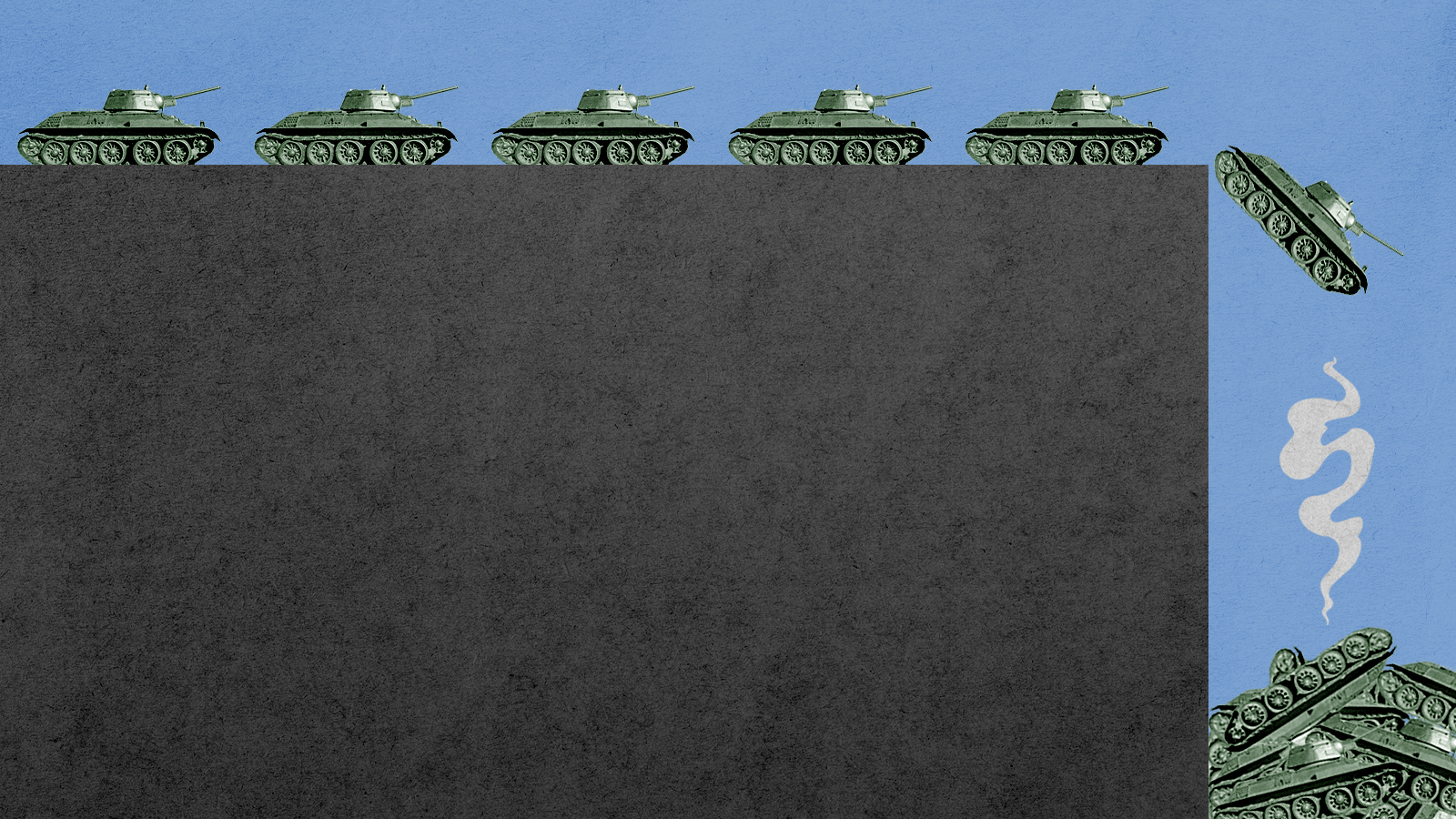What Putin should have learned from Afghanistan


A free daily email with the biggest news stories of the day – and the best features from TheWeek.com
You are now subscribed
Your newsletter sign-up was successful
The Russian invasion of Ukraine has turned out to be a much tougher slog than the Kremlin anticipated. The Kyiv offensive appears stalled. The morale of Russia's conscripts is poor. Instead of swiftly folding, Ukraine is fighting back.
None of this means Russia won't prevail in Kyiv in the end. But the cost could be unsustainably high. This raises larger questions about whether invading and occupying foreign countries necessarily pays off for the invading and occupying power.
Sen. Marco Rubio (R-Fla.) laid out Russian President Vladimir Putin's bad options in a tweet. "At best he will achieve a costly military victory followed by an even costlier long-term occupation & committed insurgency," he wrote. "At worst, he will be trapped in a humiliating quagmire."
The Week
Escape your echo chamber. Get the facts behind the news, plus analysis from multiple perspectives.

Sign up for The Week's Free Newsletters
From our morning news briefing to a weekly Good News Newsletter, get the best of The Week delivered directly to your inbox.
From our morning news briefing to a weekly Good News Newsletter, get the best of The Week delivered directly to your inbox.
If this sounds like the outcome of some policies Rubio himself has advocated, you may understand why these observations are relevant to the foreign policy considerations of governments that are not dictatorships engaged in unprovoked aggression. We think back to when imperial powers plundered other lands to add to their natural or material resources, or more recent cases where expansionist totalitarian regimes sought with each intervention to set themselves on a glide path to world domination.
But conquering unhappy foreigners in pursuit of ideological goals can actually make a country poorer and weaker rather than richer and stronger. This insight was one of the few points of agreement between Barack Obama and Donald Trump. The Soviet invasion of Afghanistan proved far more decisive in its Cold War defeat than the U.S. retreat from Vietnam. It is difficult to argue that two decades of war in Iraq and Afghanistan enhanced American strength or prestige, ending in lengthy occupations to protect short-term gains at massive costs. Afghanistan, for both Washington and Moscow, may be a better predictor of how these wars are going to go than the Cold War or World War II.
Russia has less blood and treasure to spare than the U.S. The ruble is not the world's reserve currency. And there is nothing equivalent to the 9/11 terrorist attacks to avenge. The human cost to Ukraine may be devastating, which is why the world is right to oppose what Putin is doing. But the benefits to Russia longer term could be nugatory. We must think differently about war — and hope China does too.
A free daily email with the biggest news stories of the day – and the best features from TheWeek.com
W. James Antle III is the politics editor of the Washington Examiner, the former editor of The American Conservative, and author of Devouring Freedom: Can Big Government Ever Be Stopped?.
-
 What to know before filing your own taxes for the first time
What to know before filing your own taxes for the first timethe explainer Tackle this financial milestone with confidence
-
 The biggest box office flops of the 21st century
The biggest box office flops of the 21st centuryin depth Unnecessary remakes and turgid, expensive CGI-fests highlight this list of these most notorious box-office losers
-
 The 10 most infamous abductions in modern history
The 10 most infamous abductions in modern historyin depth The taking of Savannah Guthrie’s mother, Nancy, is the latest in a long string of high-profile kidnappings
-
 The mission to demine Ukraine
The mission to demine UkraineThe Explainer An estimated quarter of the nation – an area the size of England – is contaminated with landmines and unexploded shells from the war
-
 The secret lives of Russian saboteurs
The secret lives of Russian saboteursUnder The Radar Moscow is recruiting criminal agents to sow chaos and fear among its enemies
-
 Is the 'coalition of the willing' going to work?
Is the 'coalition of the willing' going to work?Today's Big Question PM's proposal for UK/French-led peacekeeping force in Ukraine provokes 'hostility' in Moscow and 'derision' in Washington
-
 Ukraine: where do Trump's loyalties really lie?
Ukraine: where do Trump's loyalties really lie?Today's Big Question 'Extraordinary pivot' by US president – driven by personal, ideological and strategic factors – has 'upended decades of hawkish foreign policy toward Russia'
-
 What will Trump-Putin Ukraine peace deal look like?
What will Trump-Putin Ukraine peace deal look like?Today's Big Question US president 'blindsides' European and UK leaders, indicating Ukraine must concede seized territory and forget about Nato membership
-
 Ukraine's disappearing army
Ukraine's disappearing armyUnder the Radar Every day unwilling conscripts and disillusioned veterans are fleeing the front
-
 Cuba's mercenaries fighting against Ukraine
Cuba's mercenaries fighting against UkraineThe Explainer Young men lured by high salaries and Russian citizenship to enlist for a year are now trapped on front lines of war indefinitely
-
 Ukraine-Russia: are both sides readying for nuclear war?
Ukraine-Russia: are both sides readying for nuclear war?Today's Big Question Putin changes doctrine to lower threshold for atomic weapons after Ukraine strikes with Western missiles
